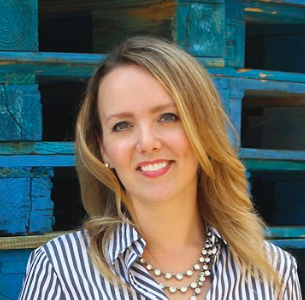
Transformational change can happen in any market, in any industry. What was once the status quo can be reimagined and replaced with better, healthier alternatives - healthier for consumers, the environment and the bottom line. We’re seeing this happen right now within the circular economy - and in a market that isn’t on either side of the Atlantic.
This game changer is underway in Santiago, Chile. Algramo is a small startup with core principles that have caught the eye of major circular economy investors and is being examined by the major consumer packaged goods (CPG) company Unilever.
What’s the big deal with this small company?
Algramo is ditching plastic waste and bringing refills to consumers when and where it’s most convenient. José Manuel Moller, founder and CEO, was an MBA student studying advanced design at Pontifical Catholic University of Chile when he started Algramo, which in Spanish means “by the gram.” He launched the company in small neighborhood grocery stores, selling food staples like rice and lentils, at a low cost, in refillable containers and within steps from their homes.
Manuel saw that in low-income neighborhoods, families and individuals are held back by grocery item prices, even for basics. Purchasing items in bulk lowers the cost per unit, but it still comes with a high upfront price. Without enough cash at hand to purchase bulk items, people are left with two options: buy smaller units (by weight, smaller packages can cost 30-50 percent more than the same product in a larger container); or, buy from large commercial stores outside the community, using extra resources to commute. These methods lead to wasted resources, packaging and emissions.
As a solution, Algramo's circular economy model was built to lessen consumers' financial and environmental burdens. The company allows customers to purchase any amount of product, like bulk foods and cleaning products, at a fixed price while supporting local businesses.
Algramo also addresses packaging waste in its model. Customers are rewarded with increased savings when they refill their containers. A radio-frequency identification (RFID) tag on the container works in two ways: it lets customers load funds into an account—making it a cashless system and it tracks when the container is brought back so a discount can be applied toward a future purchase. In Santiago, the rate at which customers reuse packaging has grown to about 85 percent.
Chile has already taken a bold step in becoming the first country in the Americas to ban plastic bags in an effort to help protect the environment, especially the ocean. In addition to plastic bags, tackling packaging waste is high on the nation’s to-do list. If more companies committed to innovative solutions, like Algramo, packaging waste that often ends up clogging landfills or littering the environment could be significantly reduced. Hence Algramo is disrupting the vast consumer packaged goods (CPG) industry by advancing new technologies and introducing new distribution channels.
As Algramo makes its way into laundry facilities in high-rise apartment complexes in the U.S., take note of its successes. By delivering sustainable and sensible solutions to the most niche and convenient locations, this method will become the most viable solution to tackling the ongoing plastic waste program. And, greater change will happen.
This bold act of change deserves attention. Selling CPG staples in small bodegas and laundry rooms may not feel like a monumental idea to some, but the ripple effect caused by this model stands to create a seismic shift in a $8 trillion (and growing) CPG industry. If Algramo’s business model can attract investment from such groups as Closed Loop Partners and attention from a the likes of Unilever, then there’s a good chance this startup can transform consumer habits for the better globally.
Image credit: Algramo/Facebook

Based in Michigan, Sarah is passionate about sustainability, storytelling and bringing to light sustainability principles that can be threaded into business strategies and communications. Formerly an editor for CSRwire and freelance writer for many organizations forwarding the principles of corporate social responsibility and circularity, she is excited to be a contributor to TriplePundit. Connect with Sarah on LinkedIn and Twitter.














